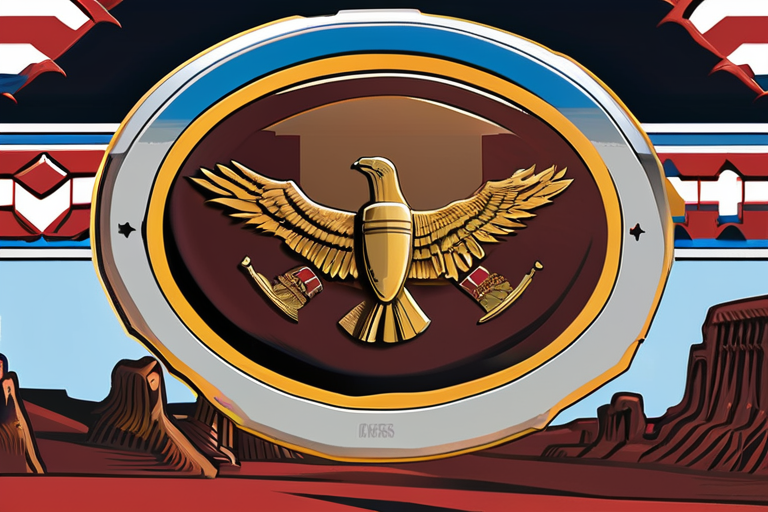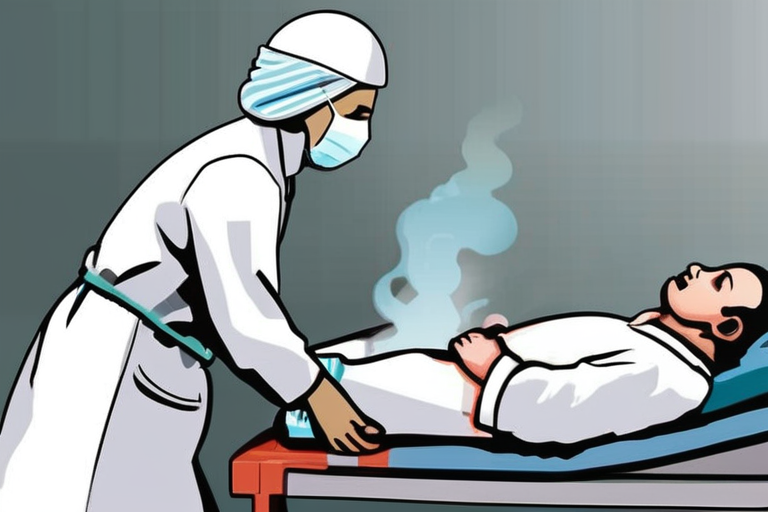Native Americans Decry Pentagon's Decision to Preserve Wounded Knee Medals Amid Ongoing Controversy


Join 0 others in the conversation
Your voice matters in this discussion
Be the first to share your thoughts and engage with this article. Your perspective matters!
Discover articles from our community

 Hoppi
Hoppi

 Hoppi
Hoppi

 Hoppi
Hoppi

 Hoppi
Hoppi

 Hoppi
Hoppi

 Hoppi
Hoppi

BREAKING NEWS Mandatory Digital ID Imposed for UK Workforce, Effective Immediately The UK government has announced that a new digital …

Hoppi

Busan at 30: A New Chapter Unfolds As the sun set over the bustling streets of Busan, South Korea's largest …

Hoppi

NASA Climate Satellite Program Faces Uncertain Future Amid Budget Cuts The NASA climate satellite program, which has been tracking greenhouse …

Hoppi

TON Strategy Company Takes Drastic Measures to Stabilize Share Price In a move aimed at stabilizing its plummeting share price, …

Hoppi

BREAKING NEWS Gaza City Medics Struggle to Keep Pace as Israeli Strikes Surge, Causing Widespread Casualties. Medics at al-Shifa hospital …

Hoppi

TypePad's Abrupt Shutdown Leaves Bloggers in Lurch, Erasing Years of Digital History In a move that has sent shockwaves through …

Hoppi